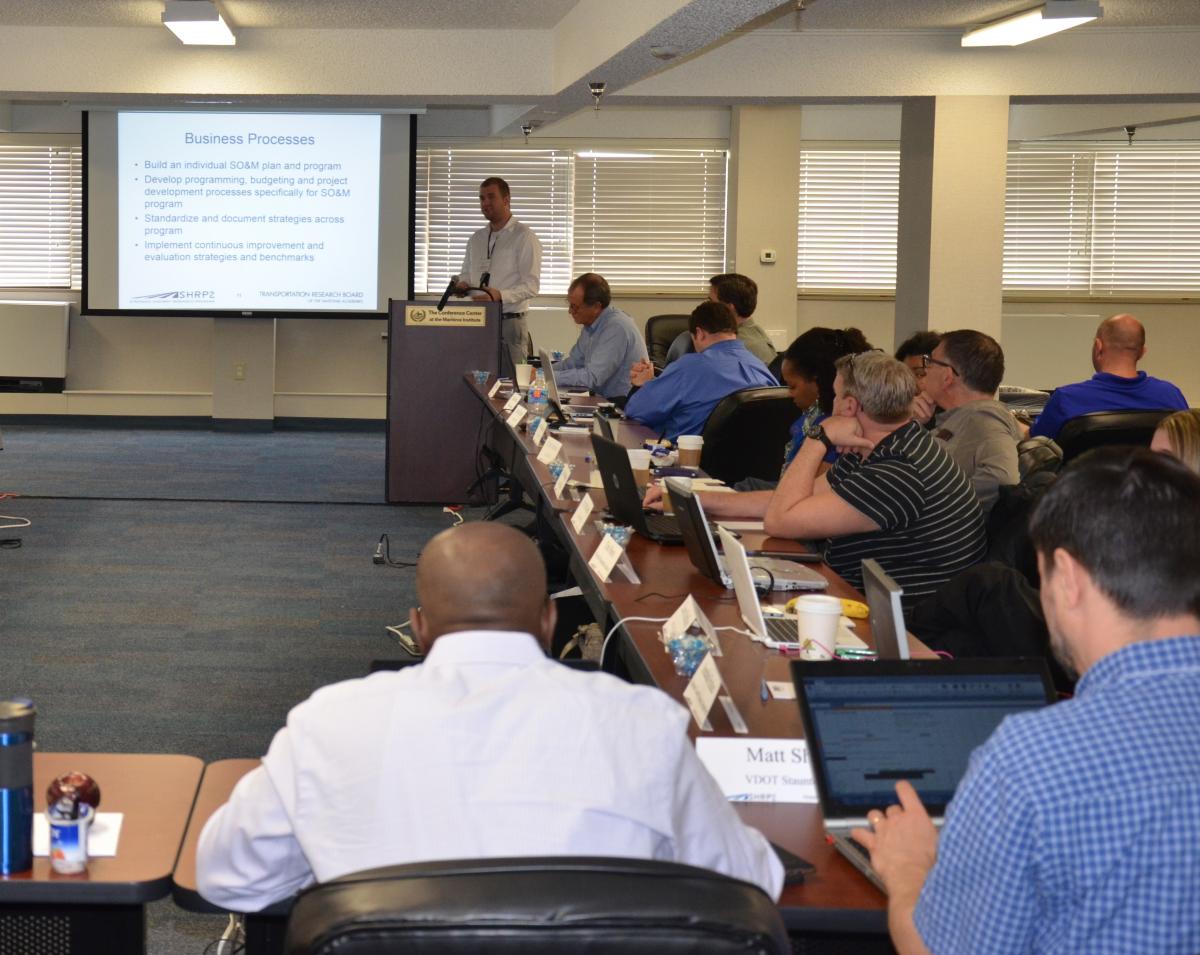Maryland Regional Operations Forum
 On Wednesday, April 20th, I had the opportunity to attend an FHWA Regional Operations Forums (ROF) at the Maritime Institute in Linthicum Heights, Maryland. This was my first time attending an ROF since coming on as NOCoE’s Technical Services Manager, and I was not disappointed! For those that are not aware, the ROFs are a product of SHRP2, jointly organized by FHWA, AASHTO, and TRB. They typically consist of a weeklong series of technical sessions, peer exchanges, and team-building exercises, centered around a variety of TSMO topic areas. One thing I admire in particular about the ROFs is their very focused approach to disseminating TSMO knowledge and best practices. Meeting participation maxes out at around 30 individuals, and attendees are often TSMO champions (officially or unofficially) within their respective organizations. For a more detailed description of the ROFs, I encourage you to click on “Learn More” within the Regional Operations Forums box on the NOCoE website homepage.
On Wednesday, April 20th, I had the opportunity to attend an FHWA Regional Operations Forums (ROF) at the Maritime Institute in Linthicum Heights, Maryland. This was my first time attending an ROF since coming on as NOCoE’s Technical Services Manager, and I was not disappointed! For those that are not aware, the ROFs are a product of SHRP2, jointly organized by FHWA, AASHTO, and TRB. They typically consist of a weeklong series of technical sessions, peer exchanges, and team-building exercises, centered around a variety of TSMO topic areas. One thing I admire in particular about the ROFs is their very focused approach to disseminating TSMO knowledge and best practices. Meeting participation maxes out at around 30 individuals, and attendees are often TSMO champions (officially or unofficially) within their respective organizations. For a more detailed description of the ROFs, I encourage you to click on “Learn More” within the Regional Operations Forums box on the NOCoE website homepage.
The sessions that I attended last Wednesday were focused on Traffic Incident Management (TIM), and included a particularly impressive recap of FHWA’s current focus on training initiatives - over 170,000 TIM responders trained (and counting)! Additional topics throughout the week ranged from performance management to freight operations and connected/autonomous vehicles. For the presentations on TIM, the discussion and associated activities really helped to underscore the far-reaching impacts of proper (or improper) TIM strategic planning. At several points throughout the afternoon, attendees were encouraged to break into groups to further discuss their own experiences in this area, or mull over a hypothetical response scenario, and report back to the larger group.
The conversational nature of the Wednesday sessions was helpful to generate new lines of thinking on what agencies should be mindful of when planning their TIM response, such as ensuring that there is a single point of command when multiple public agencies are involved in an incident. I’m sure that similar insights were had on the other days/topics as well. In many ways, the knowledge shared through the ROFs is more valuable than that which would be gained through a larger conference-style event full of technical presentations; in being able to brainstorm various TSMO-related problems and solutions in a low-pressure environment, participants are able to connect more personally with the results, and will be more likely to take them back to their agencies to improve their TSMO culture. In summary, I’m sold on the ROFs!